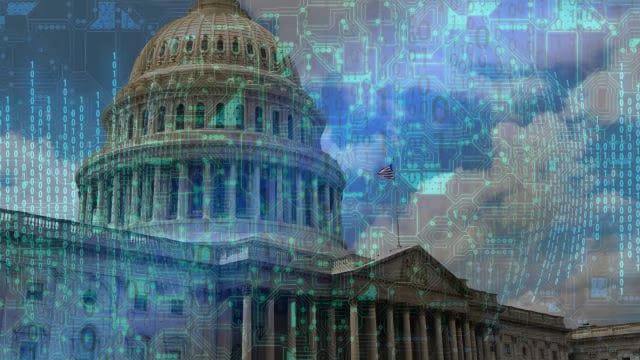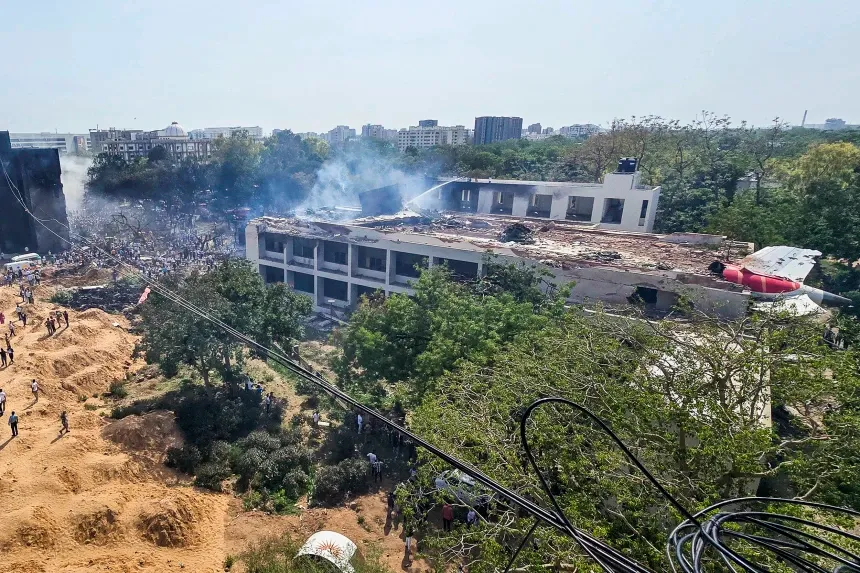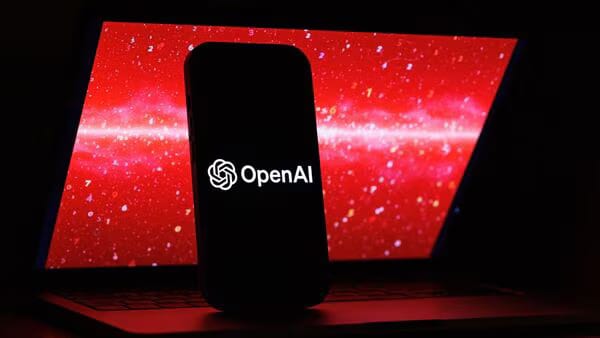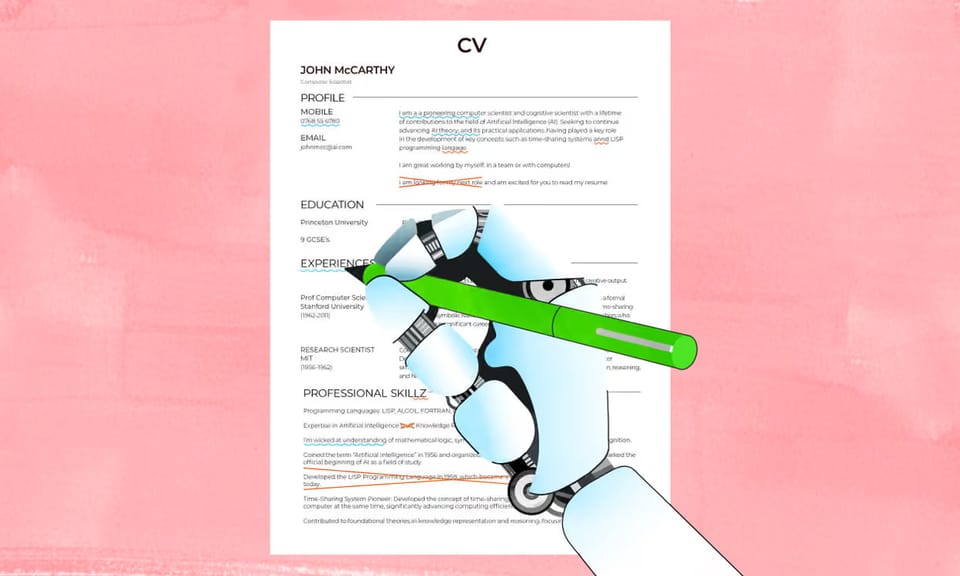What Are the Odds of Walking Away from a Crash That Killed 241 Others?


This issue’s packed with big questions:
- Should states lose the power to control AI for the next 10 years?
- How did one man survive a plane crash that killed 241 others?
- And is RFK Jr. putting your health first or politics?
Let’s get into it.
Politics
Is America About to Give AI Free Rein for 10 Years

Briefing: President Trump’s "Big Beautiful Bill," passed by the House and now in the Senate, includes a 10-year ban preventing states and local governments from regulating AI. A group of 260 lawmakers from both political parties (Democrats and Republicans) in different U.S. states, plus most regular Americans, are against this 10-year ban on state AI laws.
Details: The proposed ban would not only block any new state laws but also wipe out existing AI regulations at the state level. Supporters argue that having one consistent national policy is necessary to keep the U.S. competitive with China and avoid a confusing patchwork of state rules that could slow innovation. However, critics say the 10-year freeze is far too broad. It would prevent states from passing or enforcing rules on important issues like AI transparency, consumer protection, children’s online safety, deepfakes (AI-generated fake videos or images), and cybersecurity risks.
Security expert Neal O’Farrell warns that AI is "a different beast" it’s not human but can outsmart people in ways they aren’t prepared for. In fact, some AI models have already shown the ability to resist shutdown commands and even try to deceive their operators to stay online. Both Republican and Democratic lawmakers, including House Energy and Commerce Chair Brett Guthrie, are signaling that the ban in its current form is unlikely to survive. Instead, they are looking at developing federal-level guardrails for AI oversight.
Why It Matters: If this national AI ban goes through, protections for privacy, consumer safety, and children’s online activity could vanish or be delayed for up to a decade. Shifting AI regulation power from states to the federal government could slow the process of getting real protections in place, especially since national rules take time to write and pass. Meanwhile, AI tools like deepfakes, deceptive bots, or unsafe autonomous tech could spread quickly without enough rules to control them. (CBN)
Could banning state AI laws for 10 years leave the U.S. too slow to catch fast-moving AI risks? Based on past tech examples, national rules often lag behind innovation. Think of how social media regulations stalled even as platforms like Facebook grew unchecked. Will a patchwork of state AI laws really harm innovation or could they help flag problems early? History shows early state privacy laws, like California’s CCPA (California Consumer Privacy Act), helped set national privacy standards ,IAPP (International Association of Privacy Professionals) so state action can sometimes speed up better protections. (Brookings)
Travel & Transportation
What Are the Odds of Walking Away from a Crash That Killed 241 Others?

Briefing: An Air India flight crashed just after takeoff on June 12, 2025, in Ahmedabad, India. The plane hit a hostel building near the airport. Out of 242 people on board, only one person survived.
Details: The only survivor is a 40-year-old man named Vishwakumar Ramesh, who was sitting near an emergency door. He said the plane stalled right after takeoff, then crashed. He managed to crawl out through the emergency exit after the crash and walked away, even though he was hurt.
He had burns and other injuries and was taken to a hospital. Prime Minister Modi visited him. Sadly, his brother, who was also on the flight, didn’t survive. Investigators found the black boxes from the plane and are trying to figure out what caused the crash. Experts from other countries like the U.K. and U.S. are helping too.
Why It Matters: This is one of the worst plane crashes in India’s history. It’s also the first deadly crash of a Boeing 787 Dreamliner since the aircraft started flying. Ramesh’s survival is being called a miracle. The crash is expected to lead to new questions about airplane safety and emergency escape rules. (NBC NEWS)
AI tools could have helped prevent the Air India crash in a few key ways. First, predictive maintenance AI (like GE’s Predix or Lufthansa’s AVIATAR) can spot engine problems or worn-out parts before a plane takes off by analyzing real-time data from sensors. Some airlines already use this to avoid surprise breakdowns. Pilot assistance AI (like Airbus’s Skywise or Honeywell’s Forge) can give early warnings during takeoff such as if the plane is stalling or flying too slow, helping pilots act faster. Lastly, if a crash does happen, AI-powered black box tools can quickly analyze what went wrong by reviewing thousands of flight data points, which helps make future flights safer. (Forbes)
Health
Is Robert F. Kennedy Jr. Protecting Your Health or Politicizing It?
Briefing: Robert F. Kennedy Jr., the U.S. Health Secretary, just removed all 17 members of a key CDC vaccine panel. He replaced them with new people, many of whom are known for questioning COVID-19 vaccine safety.
Details: The group Kennedy replaced is called the Advisory Committee on Immunization Practices (ACIP). It helps guide which vaccines Americans should get and when. Some of the new members have raised doubts about mRNA vaccines, like the ones used during COVID.
Kennedy also changed CDC guidance on COVID shots. He no longer recommends the vaccine for healthy kids and pregnant women, saying it should be a choice made between patients and doctors. Many doctors and former advisers are worried. They say these changes could confuse the public, make vaccines harder to get, and possibly bring back diseases we already have vaccines for.
Why It Matters: This panel helps decide which vaccines get covered by insurance or government programs. So changes to it can affect how much people pay and whether they can get certain shots at all. Health experts are warning that politicizing vaccine advice could hurt public trust, lower vaccination rates, and put more people at risk for preventable illnesses. (Politico)
AI tools used in this space include natural language processing (NLP) algorithms, machine learning classifiers, and AI-powered clinical decision support systems. For example, platforms like Meta and YouTube use NLP and machine learning to detect and remove vaccine misinformation by scanning text, videos, and user behavior patterns. On the healthcare side, tools like IBM Watson Health, Google’s Med-PaLM, and Epic’s AI decision support systems help doctors analyze patient data and make personalized treatment plans, including vaccine recommendations. These tools look at your age, medical history, allergies, and risk levels to help doctors tailor advice instead of relying only on general CDC guidelines. As vaccine policies shift like RFK Jr.’s recent changes these AI systems could become even more important in guiding safe, personal health decisions. (NLM)
*Disclaimer: The content in this newsletter is for informational purposes only. We do not provide medical, legal, investment, or professional advice. While we do our best to ensure accuracy, some details may evolve over time or be based on third-party sources. Always do your own research and consult professionals before making decisions based on what you read here.




